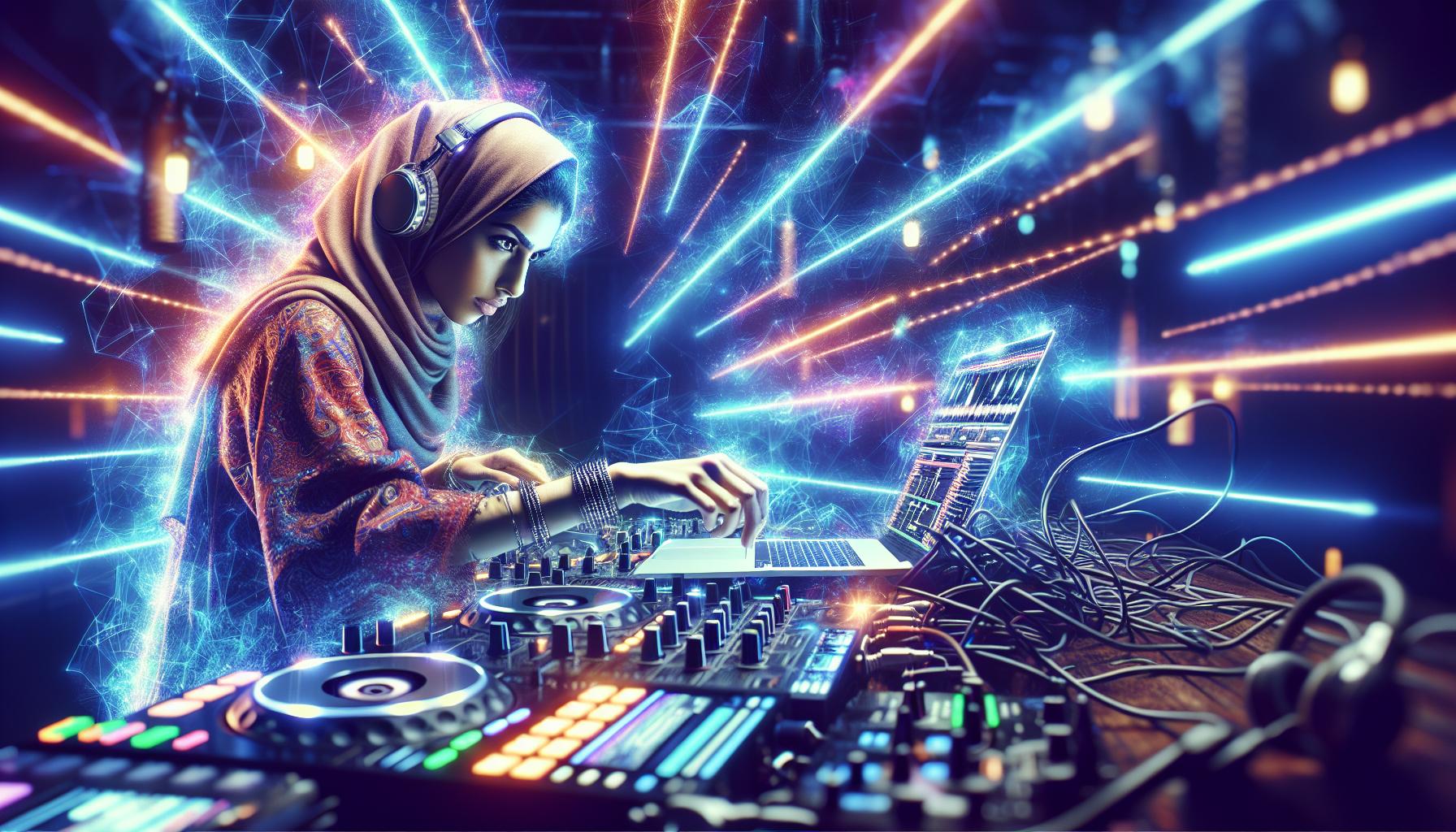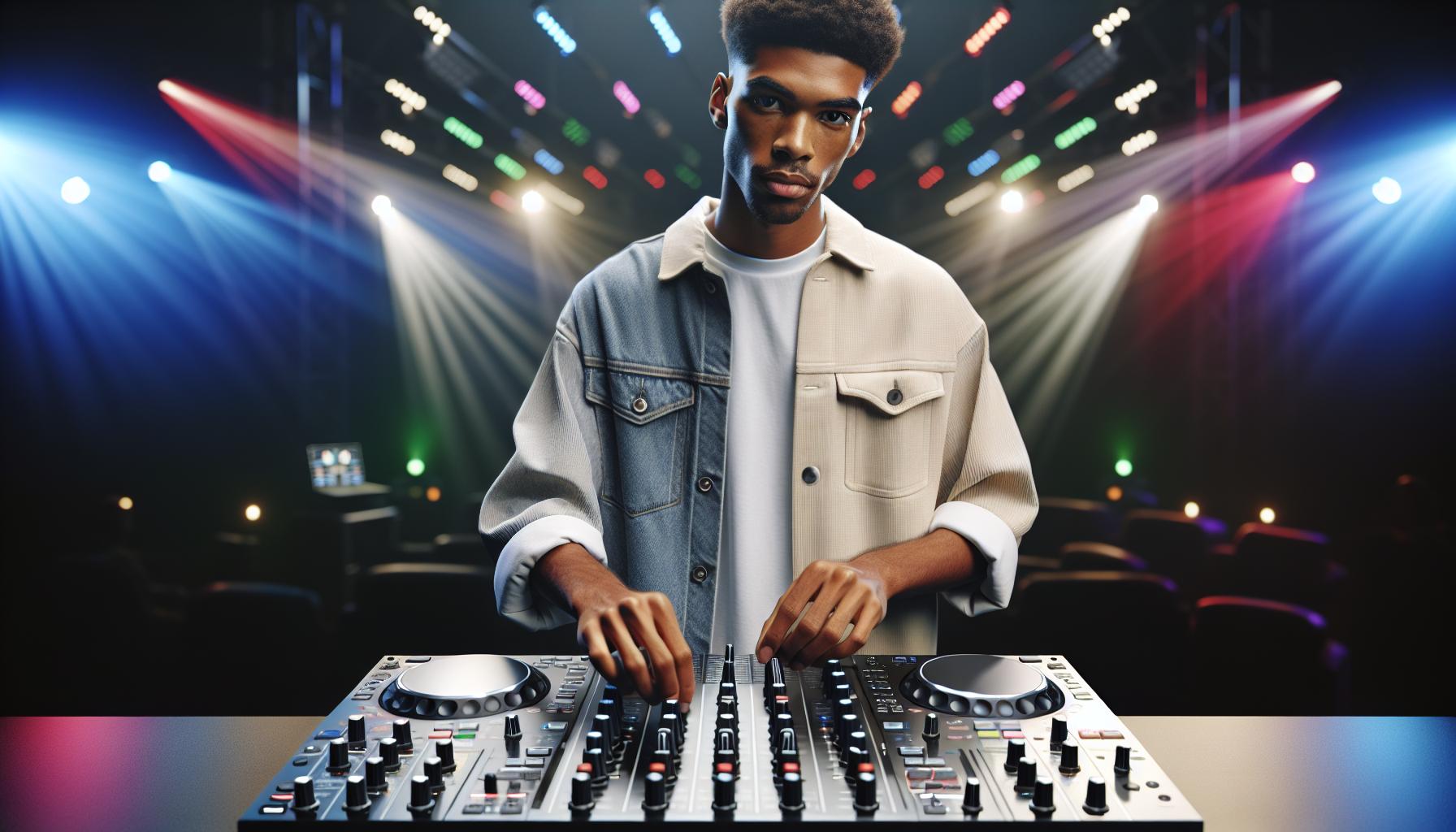In the vibrant world of DJing, the right software can make all the difference. Aspiring DJs and seasoned professionals alike rely on powerful tools to create seamless mixes, enhance their performances, and engage their audiences. With an array of options available, choosing the best software can be overwhelming.
From industry standards like Serato and Traktor to innovative newcomers, each platform offers unique features tailored to different styles and preferences. Understanding what software DJs use not only helps in honing their craft but also elevates their overall performance. Whether mixing tracks in a club or producing beats in a studio, the right software is essential for any DJ looking to stand out in a competitive landscape.
Key Takeaways
- DJ Software Variety: There are multiple options available for DJ software, each catering to different styles, skill levels, and performance needs, including Serato DJ Pro, Traktor Pro, Ableton Live, Rekordbox DJ, and VirtualDJ.
- Key Features: Important features to consider when choosing DJ software include user interface intuitiveness, compatibility with existing hardware, sound quality, and performance capabilities like effects and looping.
- Skill Level Consideration: Beginners should opt for user-friendly software such as VirtualDJ, while intermediate and advanced DJs may benefit from programs like Serato DJ Pro or Traktor Pro that offer more complex features.
- Event Type Impact: The nature of events DJs plan to perform at influences software selection; club DJs may prefer software with strong effects, whereas mobile DJs may need software that supports both audio and video mixing.
- Library Management: Efficient music organization tools are essential for easy track access during performances, helping DJs maintain a dynamic and engaging set.
- Community Support: A strong user community and support resources enhance the learning experience and troubleshooting for DJs, making it crucial to consider this aspect when selecting software.
Overview of DJ Software
DJ software plays a pivotal role in live performances and studio production. Various software options cater to different DJ styles, skill levels, and equipment.
Popular DJ Software Options
- Serato DJ Pro
Serato DJ Pro offers a professional-grade platform, known for its reliable performance and vast compatibility with hardware. It includes innovative features like Serato Flip and Pitch ‘n Time, enhancing creative mixing capabilities. - Traktor Pro
Traktor Pro stands out for its advanced effects and looping tools. It’s favored by many for its flexible and customizable interface. Traktor also supports multiple decks, allowing seamless integration during complex performances. - Ableton Live
Ableton Live is widely used in both DJing and music production. Its session view enables live remixing and real-time arrangement adjustment, making it highly versatile for electronic music producers and DJs. - Rekordbox DJ
Rekordbox DJ integrates management and performance. It streamlines track preparation and offers performance features that allow easy transition from practice to live sets. - VirtualDJ
VirtualDJ is recognized for its user-friendly interface and broad support for various hardware. It offers features like real-time track analysis and extensive video mixing capabilities, appealing to both beginner and professional DJs.
- Compatibility
Software must support the DJ’s existing hardware. This ensures a smoother integration and operation during performances. - User Interface
An intuitive interface enhances workflow efficiency, allowing DJs to focus on their mix rather than navigating complex menus. - Performance Features
Features such as effects, beat syncing, and looping are vital for creating engaging and dynamic sets. - Library Management
Efficient music organization tools help DJs manage their collections, making it easier to locate tracks during a performance. - Support and Community
A robust user community and support resources facilitate learning and troubleshooting, enhancing the user experience with the software.
DJ software provides essential tools that shape both live performances and individual DJ styles. Choosing the right software significantly impacts a DJ’s ability to connect with an audience and express creativity through their sets.
What Software do Djs Use

Numerous DJ software options exist that cater to various needs and preferences. The following highlights key software widely used in the industry.
Serato DJ
Serato DJ Pro remains a leading choice for many professionals. It offers reliable performance with low latency, essential for live mixing. The software supports numerous controllers and interfaces seamlessly with standard hardware. Advanced features like beat-gridding, hot cues, and extensive effects selection allow DJs to customize their sets effectively. Its intuitive interface makes navigation easy, fostering quick adaptation for new users.
Traktor Pro
Traktor Pro is known for its powerful effects and flexible layout. It provides extensive customization options, allowing DJs to tailor their workspace according to preferences. The software offers advanced looping and remix decks, enhancing live performance capability. Traktor’s integration with industry-standard hardware ensures smooth interaction and control. Its strong community backing offers users access to tutorials and support, making it a reliable choice for both novices and seasoned DJs.
Rekordbox DJ
Rekordbox DJ excels in track management alongside performance features. Its library management tools streamline song organization and preparation for performances. DJs can analyze tracks ahead of time, ensuring optimal selection during sets. The software includes performance modes that support creative transitions and effects. Its compatibility with Pioneer’s CDJs further enhances its appeal, making Rekordbox a popular choice among club DJs.
Virtual DJ
VirtualDJ is recognized for its user-friendly interface and advanced video mixing capabilities. It caters to DJs exploring both audio and visual elements in their performances. The software supports a wide range of controllers and hardware setups, providing versatility in applications. Features like automatic beat matching and extensive effect libraries enable efficient mixing strategies. Its active online community offers resources and plugins that enhance users’ overall experience and learning.
Features to Consider

Choosing DJ software involves several key features that significantly impact performance and user experience. DJs must evaluate factors such as user interface, compatibility, and sound quality to make informed decisions.
User Interface
User interface (UI) defines how easily a DJ can navigate the software. Look for UIs that prioritize intuitiveness, with accessible controls and clear visualization of tracks and effects. Customization options also enhance the experience, allowing DJs to adjust layouts to fit personal preferences. A well-designed UI can streamline performance under pressure and improve overall workflow.
Compatibility
Compatibility determines how well the software integrates with existing hardware, such as mixers and controllers. Check for support across popular devices and ensure updates are consistent with hardware advancements. Software that offers flexibility in terms of MIDI mapping and various hardware configurations expands creative possibilities for performances.
Sound Quality
Sound quality is crucial for live performances and recordings. DJs should select software that provides high-fidelity audio processing and minimizes latency. Features like high-resolution audio formats and advanced sound shaping tools directly influence the clarity and richness of the final output. Ensuring robust sound quality is key for maintaining audience engagement and achieving professional results.
How to Choose the Right DJ Software

Choosing appropriate DJ software requires evaluating personal skill levels and the types of events DJs plan to perform at. These factors significantly influence software selection, ensuring it aligns with individual needs.
Skill Level
Skill level plays a crucial role in selecting DJ software. Beginners may benefit from intuitive software with user-friendly interfaces, like VirtualDJ, which simplifies navigation and offers essential features. Intermediate users might prefer tools with advanced functionalities, such as Serato DJ Pro or Rekordbox DJ, which provide crucial learning opportunities and flexibility. Experienced DJs may seek professional-grade software, like Traktor Pro or Ableton Live, allowing for advanced effects, extensive customization, and intricate live remixing capabilities.
Type of Events
The type of events DJs perform at also dictates software choice. A DJ focusing on club gigs might require software with strong beatmatching and effects, such as Traktor Pro, to enhance live performances. For mobile DJs performing at weddings or parties, software that supports audio and video mixing, like VirtualDJ, could be essential. DJs specializing in live shows or remixes may find Ableton Live most suitable due to its robust production features. Understanding the event environment helps DJs select features tailored to specific settings, ensuring smoother performances and improved audience engagement.
Selecting The Right DJ Software
Selecting the right DJ software is vital for any DJ looking to elevate their performances. With a variety of options available each catering to different styles and skill levels, DJs can find tools that suit their unique needs. Whether it’s the reliability of Serato DJ Pro or the advanced features of Traktor Pro, the right choice can significantly enhance a DJ’s ability to engage an audience.
As technology continues to evolve, staying informed about the latest software options and their capabilities will help DJs remain competitive. Ultimately, the right software not only improves technical performance but also fosters creativity and connection with the audience, making it an essential component of a successful DJ career.